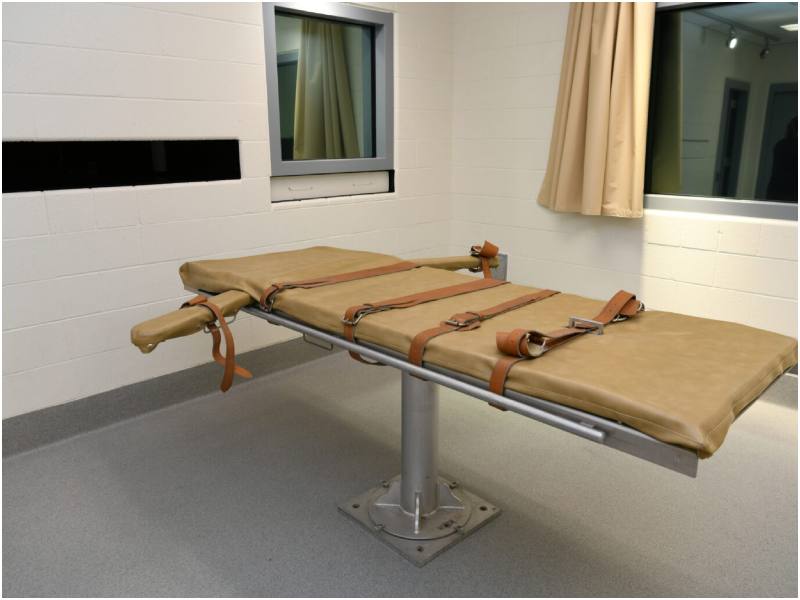In a notable departure from recent trends, five death row inmates across the United States are scheduled to be executed within a single week, marking the highest number of executions in this time frame in over two decades.
This unusual spike comes amid a broader decline in both the application and public support for the death penalty nationwide.
According to the nonprofit Death Penalty Information Center, if all five executions are carried out as planned in Alabama, Missouri, Oklahoma, South Carolina, and Texas, it will be the first time since July 2003 that five executions have taken place in just seven days.
The first execution occurred on Friday in South Carolina, and the U.S. is on track to reach its 1,600th execution since the death penalty was reinstated by the Supreme Court in 1976.
“This is an unusual situation,” said Robin Maher, executive director of the center. “Two executions on a single day are rare, and four on two different days within the same week is particularly striking.”
The Executions: What to Expect
South Carolina:
The week began with the execution of Freddie Owens on Friday, marking the state’s first execution in 13 years. Owens was put to death for the 1997 murder of a convenience store clerk during a robbery. Due to past difficulties in obtaining lethal injection drugs, South Carolina has switched to a single-drug protocol using pentobarbital.
Alabama:
On Thursday, Alabama plans to execute Alan Miller, who will become the second person in the U.S. to be executed using nitrogen gas. This innovative method involves a mask that forces the inmate to inhale pure nitrogen. Miller was previously granted a reprieve in 2022 when officials failed to establish an intravenous line for his execution. He was convicted of killing three men during workplace shootings in 1999.
Missouri and Texas:
Tuesday marks a busy day for executions, with Texas set to execute Travis Mullis, who has a documented history of mental illness and was sentenced to death for the murder of his 3-month-old son in 2008. Mullis’ attorneys have opted not to pursue any appeals.
On the same day in Missouri, Marcellus Williams is scheduled for lethal injection for the 1998 stabbing death of a woman. Williams’ legal team sought to halt the execution over alleged procedural errors, but the Missouri Supreme Court and Governor Mike Parson denied clemency.
Oklahoma:
Also on Thursday, Emmanuel Littlejohn is set to face lethal injection in Oklahoma for his role in the 1992 robbery and shooting of a convenience store owner. Although Littlejohn admits involvement in the robbery, he maintains he did not fire the fatal shot. The state’s Pardon and Parole Board recently recommended clemency, but Governor Kevin Stitt has yet to decide.
Expert Insights
Legal experts suggest that the clustering of these executions may simply be coincidental, resulting from inmates exhausting their legal appeals.
Eric Berger, a law professor specializing in the death penalty, noted that logistical issues like drug shortages and previous moratoriums could contribute to backlogs, but no specific reasons have been identified for this week’s spike.
Conclusion
As the U.S. approaches a critical juncture in its use of capital punishment, this unprecedented scheduling of executions raises questions about the future of the death penalty and its application across various states.

